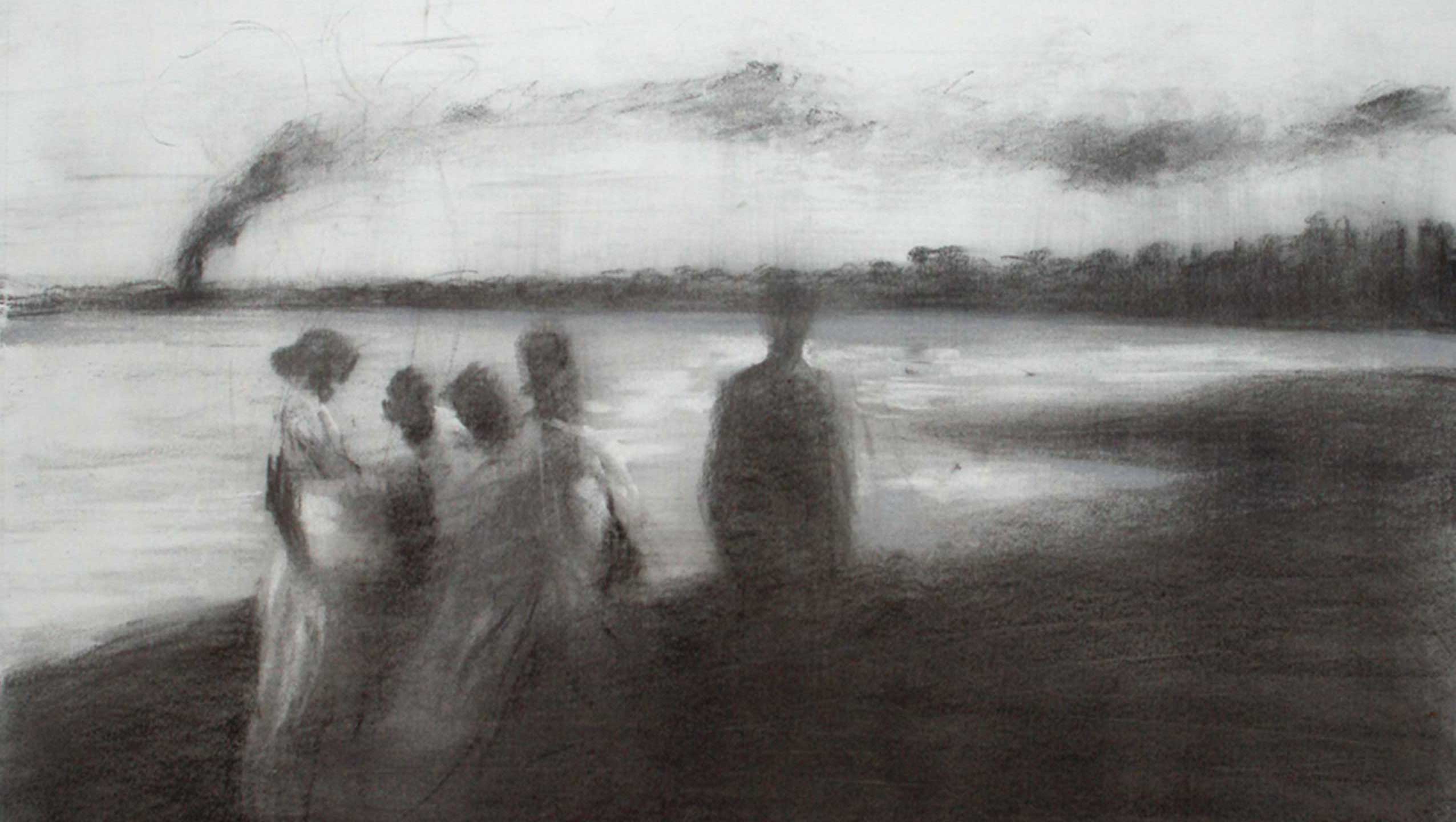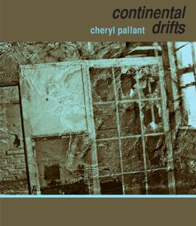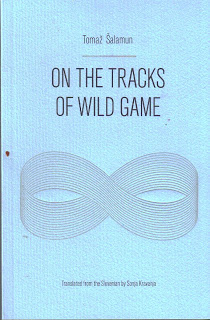Book Reviews | Tarpaulin Sky Magazine
TELLING YOU WHAT TO THINK SINCE 2003 | IMAGE: NOAH SATERSTROM

Book Reviews | Tarpaulin Sky Magazine
TELLING YOU WHAT TO THINK SINCE 2003 | IMAGE: NOAH SATERSTROM
“Burgundy striations and strains of accord”: Cheryl Pallant’s Linguistic Drifts
It makes perfect sense to me that Cheryl Pallant’s background is in modern dance. In her writing, one hears a vocal movement reminiscent of the physical movement in that other art form: it is always musically aware and syntactically limber, and it contains a large measure of improvisation and play. The pleasure of reading her books is in following patterns of linguistic energies as they take shape, move, and morph.
Lucy Biederman reviews Stephanie Dickinson’s Lust Series
Much of the great American fiction concerning sexual violence is set in a specific region, and as suspense and cruelty are evoked, so is a sense of place. For writers like Flannery O’Connor, Mary Gaitskill, Dorothy Allison, and Gayl Jones, the work of world-making contrasts with—or, even, is undone by—human acts that feel fundamentally disruptive. Out of this tradition comes Stephanie Dickinson and her excellent Lust Series, beautiful and terrifying in its portraits of girls unmoored “from state to state” (as the book’s first line has it).
Kim Vodicka’s Aesthesia Balderdash reviewed by Lisa A. Flowers
In a world where everything—the sea, ships, father and motherlands—are assigned genders, there are, correspondingly, books so suffused with their sexes they almost waft pheromones (Hemingways, Anais Nins, et al). Intercepting and scrambling such motes are tour de forces like Kim Vodicka’s Aesthesia Balderdash, whose pages seem to open on a drag queen’s indiscreet tucking in an avant-garde douche commercial written by Elsa von-Freytag Loringhoven. The regularly scheduled program is one where Kathy Acker, Emily Post, Zsa Zsa Gabor, and other luminaries get their very own alter-ego transsexuals in a fusion of Rimbaud’s “belly where sleeps the double sex” and Genesis P Orridge’s “Pandrogyne” project—a fully contained entity where “it am the selfsame cum it swallow” …“Like a flock of fucking myself I was invited to identify with.”
j/j hastain: Creative Engagement with Michael Leong’s Cutting Time with a Knife
An ultratrace element plays a significant role in the metabolism of the organism in which it resides, even if the percentage of space it inhabits within that organism is significantly less than the size of space that other elements (within that organism) take up. Perhaps the intentions that Leong ‘outs’ in the preface of his new book Cutting Time with a Knife (two of such intentions being: “to create an un-holy amalgam on which we might witness the chance meeting of a poet and a cryogenic tank” / “to perhaps quixotically if not poetically anticipate the future contours of literary history”) are ultratrace elements within the larger work? There is no singular-narrative, authoritative voice moving through the book, reminding us of Leong’s intentions, but we feel those intentions permeate pages; intensify our pulse, our pauses.
Tomaž Šalamun’s On the Tracks of Wild Game reviewed by Kevin Kinsella
In 1964, the Yugoslavian literary journal Perspektive published a poem that mentioned a dead cat and the new editor was promptly arrested. It seems that Tito’s interior minister Maček (“cat”) thought the poem was about him, so he sentenced his maligner to 12 years in prison. But the arrest of Tomaž Šalamun set off such a hue and cry from the international literary and human rights communities that he was released after just five days. While the dead cat reference was nothing more than a coincidence, Šalamun managed to come out of it all as something of a hero--a distinction he would later laugh off in Bomb Magazine in 2008 as “a very cheap glory.” Still, he realized that he would have to “become a really good poet to earn [his] fame.”
Joyelle McSweeney’s Percussion Grenade reviewed by Erin Lyndal Martin
Joyelle McSweeney's Percussion Grenade is reviewed by Erin Lyndal Martin: "[McSweeney's] diction runs the gamut from virtually ululated neologisms ('Opeeeeeeeegalala!') the more technical: 'It's wired to a neural hinge inside a mountain / and swings out smoother than gravity.'.... McSweeney has no love for complacency, and she illustrates that in form and content."
“Burgundy striations and strains of accord”: Cheryl Pallant’s Linguistic Drifts
It makes perfect sense to me that Cheryl Pallant’s background is in modern dance. In her writing, one hears a vocal movement reminiscent of the physical movement in that other art form: it is always musically aware and syntactically limber, and it contains a large measure of improvisation and play. The pleasure of reading her books is in following patterns of linguistic energies as they take shape, move, and morph.
Lucy Biederman reviews Stephanie Dickinson’s Lust Series
Much of the great American fiction concerning sexual violence is set in a specific region, and as suspense and cruelty are evoked, so is a sense of place. For writers like Flannery O’Connor, Mary Gaitskill, Dorothy Allison, and Gayl Jones, the work of world-making contrasts with—or, even, is undone by—human acts that feel fundamentally disruptive. Out of this tradition comes Stephanie Dickinson and her excellent Lust Series, beautiful and terrifying in its portraits of girls unmoored “from state to state” (as the book’s first line has it).
Kim Vodicka’s Aesthesia Balderdash reviewed by Lisa A. Flowers
In a world where everything—the sea, ships, father and motherlands—are assigned genders, there are, correspondingly, books so suffused with their sexes they almost waft pheromones (Hemingways, Anais Nins, et al). Intercepting and scrambling such motes are tour de forces like Kim Vodicka’s Aesthesia Balderdash, whose pages seem to open on a drag queen’s indiscreet tucking in an avant-garde douche commercial written by Elsa von-Freytag Loringhoven. The regularly scheduled program is one where Kathy Acker, Emily Post, Zsa Zsa Gabor, and other luminaries get their very own alter-ego transsexuals in a fusion of Rimbaud’s “belly where sleeps the double sex” and Genesis P Orridge’s “Pandrogyne” project—a fully contained entity where “it am the selfsame cum it swallow” …“Like a flock of fucking myself I was invited to identify with.”
j/j hastain: Creative Engagement with Michael Leong’s Cutting Time with a Knife
An ultratrace element plays a significant role in the metabolism of the organism in which it resides, even if the percentage of space it inhabits within that organism is significantly less than the size of space that other elements (within that organism) take up. Perhaps the intentions that Leong ‘outs’ in the preface of his new book Cutting Time with a Knife (two of such intentions being: “to create an un-holy amalgam on which we might witness the chance meeting of a poet and a cryogenic tank” / “to perhaps quixotically if not poetically anticipate the future contours of literary history”) are ultratrace elements within the larger work? There is no singular-narrative, authoritative voice moving through the book, reminding us of Leong’s intentions, but we feel those intentions permeate pages; intensify our pulse, our pauses.
Tomaž Šalamun’s On the Tracks of Wild Game reviewed by Kevin Kinsella
In 1964, the Yugoslavian literary journal Perspektive published a poem that mentioned a dead cat and the new editor was promptly arrested. It seems that Tito’s interior minister Maček (“cat”) thought the poem was about him, so he sentenced his maligner to 12 years in prison. But the arrest of Tomaž Šalamun set off such a hue and cry from the international literary and human rights communities that he was released after just five days. While the dead cat reference was nothing more than a coincidence, Šalamun managed to come out of it all as something of a hero--a distinction he would later laugh off in Bomb Magazine in 2008 as “a very cheap glory.” Still, he realized that he would have to “become a really good poet to earn [his] fame.”
Joyelle McSweeney’s Percussion Grenade reviewed by Erin Lyndal Martin
Joyelle McSweeney's Percussion Grenade is reviewed by Erin Lyndal Martin: "[McSweeney's] diction runs the gamut from virtually ululated neologisms ('Opeeeeeeeegalala!') the more technical: 'It's wired to a neural hinge inside a mountain / and swings out smoother than gravity.'.... McSweeney has no love for complacency, and she illustrates that in form and content."





